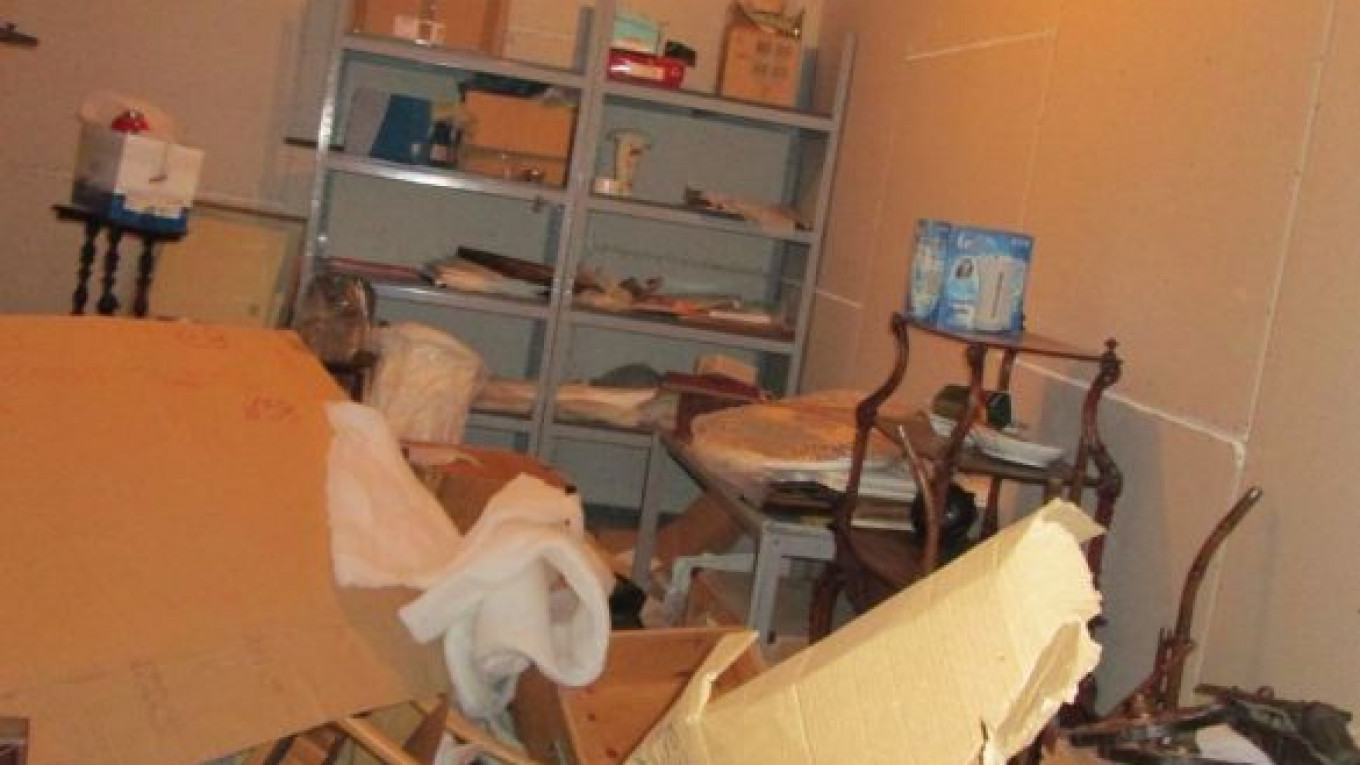"The first thing we saw, entering one of the vaults, was an 18th century ikon of the holy apostles wrapped in a brocade dress from that period laying on the floor — it seems they didn't manage to carry it out," said Olga Drug, a department head at the museum. Museum employees quickly discovered other items missing and found that the premises had been ransacked.
The looting coincided with a night of chaos in the city center as protesters clashed with police in an escalation of the ongoing protests against President Viktor Yanukovych that began on Nov. 21 after the president's decision to abandon plans for EU integration.
As a result of the escalating violence of the streets, museum workers were evacuated from the premises, on the fourth and fifth floors of the "Ukrainian House" building, at about 5 pm, at which time a security officer inspected the premises and ensured that the museum holdings were closed and the alarm was active.
At about midnight, the alarm was activated, yet no one responded to the call as law enforcement was occupied with the ongoing conflict between protesters and riot police.
In the morning, employees arrived at the premises to find the museum holdings ransacked. Some items, including pieces of 18th century porcelain, appeared to have been stolen, while a greater quantity of exhibits had been broken or strewn across the floor.
While this seems to be the first instance of looting, the National Art Museum of Ukraine expressed concerns about the safety of their holdings in an open letter published on Jan. 24 in which they called on both protesters and police to respect the museum as a neutral zone. The area of central Kiev fought over by protesters is home to many museums and cultural heritage sites.
A Message from The Moscow Times:
Dear readers,
We are facing unprecedented challenges. Russia's Prosecutor General's Office has designated The Moscow Times as an "undesirable" organization, criminalizing our work and putting our staff at risk of prosecution. This follows our earlier unjust labeling as a "foreign agent."
These actions are direct attempts to silence independent journalism in Russia. The authorities claim our work "discredits the decisions of the Russian leadership." We see things differently: we strive to provide accurate, unbiased reporting on Russia.
We, the journalists of The Moscow Times, refuse to be silenced. But to continue our work, we need your help.
Your support, no matter how small, makes a world of difference. If you can, please support us monthly starting from just $2. It's quick to set up, and every contribution makes a significant impact.
By supporting The Moscow Times, you're defending open, independent journalism in the face of repression. Thank you for standing with us.
Remind me later.


